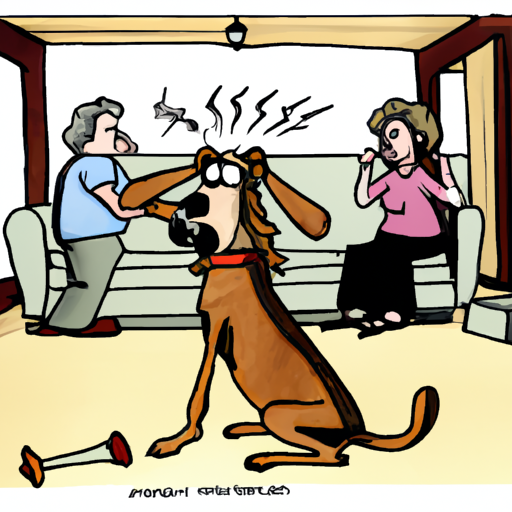Barking is a natural behavior for dogs, but it can become a problem when it becomes excessive. If you’re asking yourself “why won’t my dog stop barking?” this guide will help you understand the reasons and provide solutions to calm your furry friend down.
Understanding Why Dogs Bark
Dogs bark for a variety of reasons. As a caregiver, understanding these reasons can help you manage your dog’s behavior:
- Alert/Warning: Dogs bark to alert their owners to something unusual or potentially dangerous.
- Attention-seeking: If your dog wants something from you, they might bark to get your attention.
- Anxiety: Dogs suffering from separation anxiety often bark excessively when left alone.
- Boredom: Lack of physical and mental stimulation can lead to excessive barking.
- Playfulness: Some dogs bark when they are excited or want to play.
Identifying Causes of Excessive Barking
Identifying the cause of your dog’s barking is the first step towards solving the problem. Here are some common triggers:
- Physical Needs: Hunger, thirst, or needing to go outside can cause a dog to bark.
- Environmental Factors: Unusual noises or sights, strangers, or other animals can trigger barking.
- Health Issues: Pain or discomfort can lead to increased barking.
Understanding the cause can help you tailor your response and find a solution that works.
How to Stop Your Dog From Barking
Here are some strategies to help manage your dog’s barking:
Training
Training your dog to understand commands like “quiet” or “enough” can be very helpful. Remember, consistency is key in training.
Provide Stimulation
A bored dog is a noisy dog. Provide plenty of physical and mental stimulation to keep your dog entertained.
Ignore the Barking
If your dog is barking for attention, ignoring them until they stop can teach them that barking won’t get them what they want.
Consult a Professional
If you’re struggling to manage your dog’s barking, consider consulting a professional dog trainer or a behaviorist.
Recognizing When Barking is a Problem
While some barking is normal, excessive barking can indicate a problem. Signs that barking is a problem include:
- Barking that causes a disturbance to you or your neighbors
- Barking that continues for hours without any apparent reason
- Barking that is accompanied by other signs of distress, such as pacing, destructiveness, or inappropriate elimination
Medical Reasons for Excessive Barking
Some medical conditions can cause excessive barking. These include:
- Pain or Discomfort: Dogs often vocalize when they’re in pain.
- Cognitive Dysfunction: Older dogs may develop cognitive dysfunction, which can lead to increased barking.
- Hearing or Vision Loss: Dogs with impaired hearing or vision may bark more due to increased anxiety or confusion.
If you suspect a medical issue is causing your dog’s barking, consult your vet immediately.
Table: Potential Solutions Based on Reasons for Barking
| Reason for Barking | Potential Solution |
|---|---|
| Attention Seeking | Ignore until quiet, then reward calm behavior |
| Boredom | Provide plenty of physical and mental stimulation |
| Fear/Anxiety | Provide a safe space, consider anxiety-reducing products |
| Alert/Warning | Acknowledge the alert, then give “quiet” command |
FAQ
Q: How can I teach my dog the ‘quiet’ command?
A: Start by saying ‘quiet’ when your dog barks. As soon as they stop, reward them with a treat or praise. Repeat this consistently until your dog associates the command with stopping barking.
Q: Is it normal for puppies to bark a lot?
A: Yes, puppies tend to bark more than adult dogs as they are still learning about their environment and how to communicate.
Q: My dog barks at everything, what can I do?
A: If your dog is overly reactive, it might be worth consulting a professional dog trainer or behaviorist for help.
Q: How can I tell if my dog’s barking is due to a health issue?
A: If your dog’s barking is accompanied by other signs of distress or discomfort, or if they seem to be barking at nothing, it’s worth consulting your vet.
Remember, barking is a natural behavior for dogs, and it’s not realistic or fair to expect a dog to never bark. The goal should be to manage the barking so it doesn’t become a nuisance or indicate a problem. With patience and understanding, you can help your dog become a quieter, happier member of your household.



